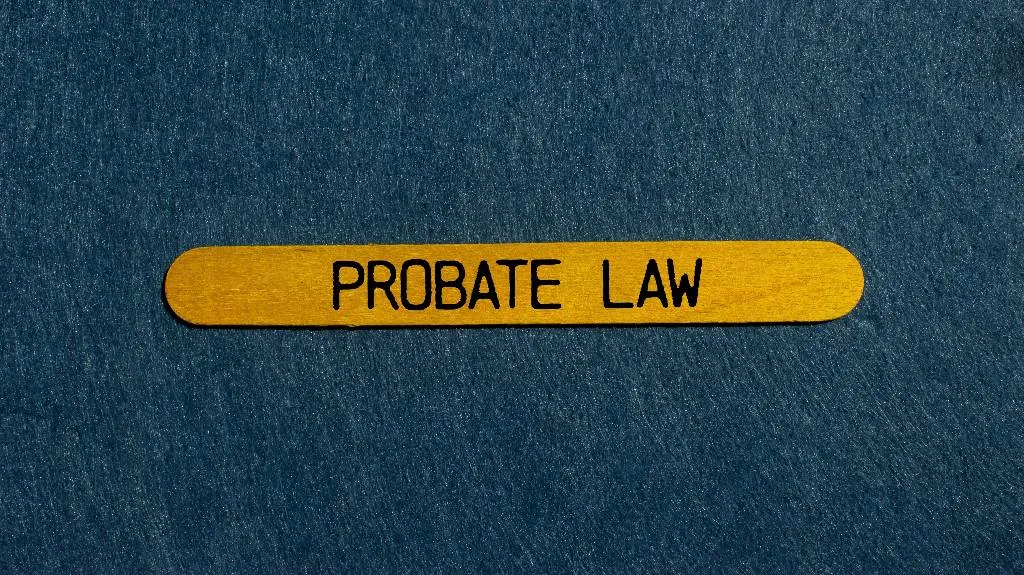One of the initial stages in the process of settling the affairs of a deceased loved one is to ascertain the value of their estate. Accurate valuation is essential regardless of whether the estate is being administered through trust administration or probate court. This valuation affects the distribution of assets, as well as the payment of taxes and debts.
In this article, we will examine the estate valuation process in both probate matters and trust administration, elaborate on the responsibilities of probate referees and appraisers, and offer a real-world example to demonstrate the process of estate valuation.
Residents of Rocklin and Roseville can confidently and clearly navigate the intricacies of estate administration by understanding these procedures.
The Significance of Estate Valuation
Estate valuation is the process of ascertaining the fair market value of all assets that were possessed by the deceased at the time of their passing. There are numerous reasons why this value is essential:
1. Establishing Estate Taxes:
The estate’s value is employed to determine any applicable estate taxes. Federal estate taxes are imposed on estates in California that surpass the federal exemption limit, which is $13.61 million per individual as of 2024.
2. Asset Distribution:
The equitable distribution of assets is ensured by the accurate valuation of the estate, which is in accordance with the deceased’s will or trust, or the state intestacy law in the absence of a will.
3. Resolving Debts:
The estate’s assets are used to pay creditors, and the valuation is used to determine the amount of money that is available to satisfy outstanding debts.
4. Legal Proceedings and Probate:
In order to guarantee transparency and appropriate administration, the probate court necessitates a comprehensive inventory and appraisal of the estate’s assets.
Estate Valuation in Probate Matters
In California, the valuation of an estate’s assets is conducted through a specific procedure during the probate process. The appointment of a probate referee and the involvement of appraisers for specific assets are all part of this process.
1. Inventory and Appraisal
The initial phase of probate involves the submission of an inventory and appraisal of the estate’s assets to the probate court. The executor or personal representative of the estate is accountable for the preparation of this inventory, which comprises a comprehensive summary of the deceased’s assets, including real estate, personal property, bank accounts, investments, and any other valuable items.
2. Function of the Probate Referee
A probate referee is an official appointed by the court to evaluate specific assets within the estate. Probate referees in California are licensed professionals who have successfully completed an examination and are appointed by the court to provide valuation support during the probate procedure.
3. Designation of a Probate Referee:
A probate referee is appointed by the probate court from a registry that is maintained by the California State Controller’s Office. The probate referee appraises the non-cash assets after the executor or personal representative submits the inventory of assets.
4. Obligations of a Probate Referee:
The probate referee’s primary responsibility is to ascertain the reasonable market value of all non-cash assets in the estate, including real estate, business interests, and personal property such as jewelry, art, or collectibles. The probate referee submits a written report to the court that includes the appraised values, which are subsequently used to determine the estate’s value.
5. Appraisers for Specific Assets
Specialized appraisers may be necessary in addition to the probate referee for certain assets. For example:
Real property appraisers:
A licensed real estate appraiser may be employed to ascertain the current market value of the estate’s real estate. Factors such as location, property condition, and recent sales of comparable properties are taken into account by the appraiser.
Appraisers of High-Value Personal Property:
A specialized appraiser with expertise in the specific field may be necessary for valuable items such as art, antiques, or uncommon collectibles. In order to determine the item’s value, these appraisers evaluate its condition, provenance, and market demand.
Estate valuation in trust administration
The procedure of estate valuation differs slightly from probate when an estate is administered through a trust. The probate process is frequently bypassed by trust administration; however, precise valuation is equally critical.
1. Duties of a Trustee:
The trustee is accountable for the management of the estate’s assets in accordance with the provisions of the trust in trust administration. This encompasses the valuation of the estate’s assets to guarantee that they are distributed appropriately to beneficiaries and that any tax obligations are met.
2. Initial Inventory:
The trustee initiates the process by compiling an inventory of all the assets in the trust, a process that is comparable to probate. Real estate, financial accounts, personal property, and any other assets that the trust possesses should be included in this inventory.
3. Valuation of Assets:
The trustee has the option of employing appraisers to ascertain the value of specific assets, such as high-value personal property or real estate. The trustee is responsible for selecting the appropriate professionals to conduct the valuations, as opposed to a probate referee, who is not involved in this process.
4. Distribution of Trust Assets:
The trustee distributes the assets in accordance with the trust’s instructions after they have been valued. This may entail the direct transfer of assets to the beneficiaries or the sale of specific assets to provide financial distributions.
5. Tax Factors:
The trust’s assets are also assessed to ascertain the amount of estate taxes that are due. Before distributing the remaining assets, the trustee must ensure that the appropriate taxes are paid if the trust’s assets exceed the federal estate tax exemption ($13.61 million in 2024).
Case Example: Estate Valuation in Action
Consider the case of Sarah, a Rocklin resident who passed away, leaving behind a substantial estate that encompassed a family residence, a collection of antique jewelry, and a variety of investment accounts. Sarah had designated her son as the trustee of a revocable living trust.
Step 1: Inventory and Initial Valuation
Sarah’s son initiated the process by compiling a comprehensive inventory of the trust’s assets. Subsequently, he engaged a real estate appraiser to ascertain the value of the family residence, which was assessed at $750,000. Additionally, he engaged a specialized appraiser to assess the antique jewelry collection, which was valued at $100,000.
Step 2: Tax Filing and Compliance
The trustee collaborated with a tax professional to file the requisite tax returns and guarantee that all taxes were paid prior to the final distribution of assets, as the estate’s total value exceeded the federal estate tax exemption.
Step 3: Asset Distribution
The family home was to be sold in accordance with the trust’s provisions, and the proceeds were to be equally distributed among Sarah’s two children. The descendants were to receive a portion of the jewelry collection. The trustee distributed the jewelry, divided the proceeds, and sold the property in accordance with the trust.
This example demonstrates the critical role of accurate estate valuation in guaranteeing the seamless execution of the trust administration process, the receipt of the intended inheritances by beneficiaries, and the fulfillment of legal and tax obligations.
Conclusion
Probate and trust administration are both contingent upon estate valuation. It is imperative to comprehend the function of probate referees, appraisers, and the overall valuation process, regardless of whether you are managing a trust or addressing probate matters in the probate court. The equitable distribution of assets, the proper payment of taxes, and the fulfillment of the deceased’s wishes are all ensured by accurate estate valuation.
Working with an experienced probate or trust administration attorney can be a game-changer for residents of Rocklin and Roseville as they navigate the intricacies of estate valuation and administration.
We at Filippi Law Firm, P.C., are experts in assisting clients with probate and trust administration, guaranteeing that each phase of the process is executed with professionalism and compassion.
Please do not hesitate to reach out to our office if you have any inquiries regarding estate valuation or require assistance with probate or trust administration.




